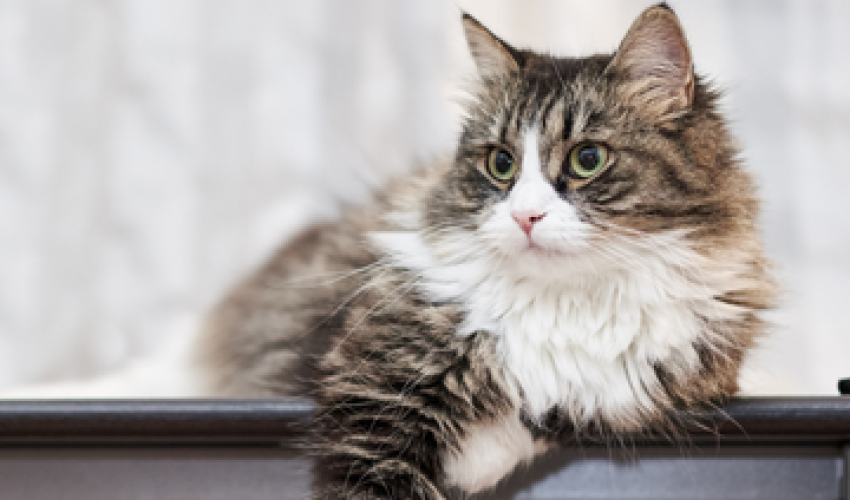
House cats can live well into their teens and sometimes may even see their twenties. Everyone knows that a kitten has special health needs and care requirements that are different from that of adult cats. Likewise, an older cat has special health needs and care requirements that are different from when he was a young adult.
At about age 11, a cat enters the geriatric phase in his life. What worked up to that point might not work as well, and changes may be required. With good care, your cat's golden years can be happy and healthy. Here are a few tips that may help.
Feed Your Senior Cat a Proper Diet
As animals age, they slow down and don't burn calories as quickly. Their nutritional requirements can also change. To ensure your cat remains healthy as a senior, feed him a formula developed especially for senior cats.
Make sure your cat remains at his ideal weight to prevent obesity and obesity-related health problems. Many elderly cats will benefit from smaller, more frequent meals to help aid digestion.
Cats are more at risk for kidney problems and constipation as they age, so it is important to help your cat stay hydrated by supplying him with plenty of fresh water.
If your cat develops any problems with allergies, constipation, diarrhea, or health problems in general, talk to a veterinarian about his ideal diet.
Give Your Senior Cat Enough Exercise
Cats require both physical and mental exercises to keep them healthy and to improve their quality of life. As cats age, however, the stamina and agility that they once possessed may decline. This doesn't mean you should not encourage them to get exercise or play; it just means you may need to make some adjustments.
Swap out toys more frequently to keep your cat from getting bored. Play can be an enriching experience for both of you. If your cat gets tired more quickly these days, have a couple of shorter play sessions throughout the day rather than one long one.
If your cat likes to climb to high places, provide him with a cat tower if he doesn't already have one. This will give him the ability to climb comfortably and will be easier on his joints than scaling the furniture. Encourage your cat to move around by strategically placing treats on the different tower platforms.
Watch for Subtle Signs of Problems
When cats are sick and/or in pain, they are very good at hiding it. Signs of weakness put animals at risk in the wild, and cats maintain these instincts to put on a good front when they don't feel well.
Still, if you are observant, you will notice subtle signs if your cat isn't feeling well. He may become lethargic and his interest in activity may drop. He may shy away from being social and spend more time hiding and brooding. He may become more sensitive to touch or show difficulty moving and grooming himself. His appetite may suffer or he may lose weight.
If your cat shows any behavior that is not normal for him, it is a good time to call your vet for advice.
Keep Getting Regular Vet Check-Ups
As your furry friend ages, it is more important than ever to keep up with regular veterinary check-ups. Early detection is often the best defense against many ailments. Check-ups should include routine dental care, as poor oral health can result in infections that get into the bloodstream and affect a cat's organs.
The Animal Doctors of Palo Alto are accredited by the American Animal Hospital Association and have been providing outstanding veterinary care in Palo Alto to aging cats and their humans for 40 years. We offer comprehensive care services for senior pets that include everything from biannual exams, vaccinations, diagnostic procedures, on-site laboratory testing, surgery, laser therapy, endoscopy, and dental care.
As a beloved pet's time draws near, we also offer end-of-life hospice counseling. Should the time come to humanely end the life of a pet, we support and guide pet owners in those difficult decisions and through procedures.
Call us for an appointment so we can give your senior cat quality care. Our areas of coverage include the San Francisco Peninsula, including Atherton, Cupertino, East Palo Alto, Los Altos, Los Altos Hills, Menlo Park, Mountain View, Palo Alto, Portola Valley, Redwood City, Stanford, and Woodside.


